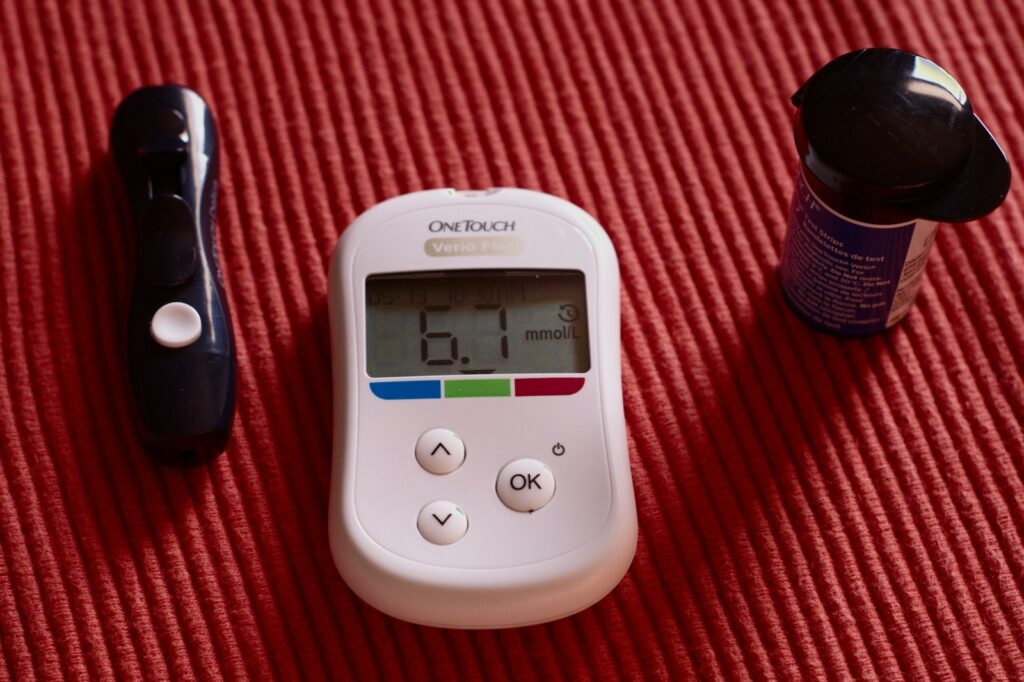
Finished a meal feeling full? But soon you search the pantry. Reaching for things like crackers or a bar. That experience frustrates many folks. You ask, “Why am I always hungry?”. Truly, you is not alone feeling this. Lots of us face hunger pangs all day. Sometimes feeling hungry just one hour later occurs. This is according to some recent findings.
Constant need to eat signals body needs fuel. But also shows lifestyle or dietary issues exist. Unmanaged signals from these habits happen. Giving in often leads to fatty foods. Processed carbohydrates are another common choice. This pattern over time can lead to weight gain. It impacts overall well-being too.
The good news? You can feel satisfied all day. No longer perpetually hungry. First step is finding the root causes. Why do you constant want to eat? Experts listed common hunger triggers. They explain why they occur. Practical tips help quiet persistent food noise. This aids in controlling your appetite.

1. **Shifting Hormones**: Hormones big influence persistent hunger. This especially happens as us gets older. Menopause causes estrogen levels to drop. This throws off hunger and fullness hormones. That shift makes appetite control harder.
Lower estrogen connects to more ghrelin. Ghrelin is the hunger hormone. Leptin goes down. Leptin signals fullness. This hormonal imbalance makes you hungrier. Even if food intake stays same. More ghrelin could cause craving shifts. This hormone stimulates appetite you see. It also changes food preferences. Research confirms this in one journal.
Hormone changes impact digestion too. They reduce digestive strength slightly. Less enzyme or acid production happens. Gut microbiome composition also changes. Eat protein and fiber foods. This helps offset hormone-driven pangs. Fruits and vegetables are good choices. They helps you feel full longer. Lean proteins include eggs and chicken. Tofu works well too. Pair them with high-fiber foods. Vegetables, nuts, and whole grains are effective. Incorporating strength training is smart. Regular exercise helps leptin sensitivity. Body better knows when it ate enough.
2. **Unsteady Blood Sugar Levels**: Bodies process carbohydrates less well now. Reduced efficiency causes blood sugar spikes. This happens right after eating sometimes. Then comes sharp, sudden crashes. These fluctuations often trigger hunger. They cause intense cravings too. Typically, for quick-energy foods. Think sweets or processed carbs here.
Insulin resistance worsens this issue much. It is common in midlife people. Body struggles using insulin effectively. Cells get no energy from glucose right. Constant feeling of needing to eat happens. Adding processed quick-fix snacks? This only makes problem deeper. One expert says overfed in calories occurs. But undernourished in nutrients follows. This leads to constant hunger stages. Even after eating food itself.
Stable blood sugar keeps you from crashes. Prioritize complex carbohydrates always. Quinoa and whole grains release glucose slower. Sweet potatoes are a good example. Pair these complex carbs with protein. Healthy fats are crucial also. This combo slows digestion further. It gives steadier energy release. Longer feelings of fullness result. Some research suggest apple cider vinegar before meals. It may improve insulin sensitivity perhaps. Helping body process food better might result. But scientific evidence is mixed so far.

3. **Poor Sleep Quality**: Sleep quality affects appetite hormones big. Duration of your sleep matters also. Hot flashes may disrupt sleep cycles. Increased stress can do this. Shifting circadian rhythms play a part. Too much screen time affects rest. Irregular work patterns cause poor sleep. These disturbances affect how hungry you feel deeply.
Poor sleep boosts ghrelin production. This is like dropping estrogen levels. It decreases leptin at same time. This imbalance make feeling satisfied hard. Even with enough food consumed. Sleep deprivation linked to chronic diseases. Diabetes and heart disease happens. Breast cancer risk is higher. Low bone density too occurs. Good sleep habits are widely important.
Improve sleep hygiene now. This regulates these hormones. Keep consistent bedtime habits. Reduce screen time before sleep much. Bedroom should stay cool and dark. All these contribute to better sleep quality. Some research suggests magnesium-rich foods help. Spinach, almonds, dark chocolate are examples. Taking magnesium supplement may help sleep. This potentially reduces excessive hunger. More studies are needed though.
Read more about: 10 Fashion Hacks to Make Basic Clothing Look Luxurious

4. **Dehydration**: Sensation you feel as hunger? It can be thirst sometimes. This confusion common happens. Natural thirst cues weaken as us age. Distinguishing need for food and fluids is hard. Mistaking thirst for hunger leads to snacking. Body truly requires only hydration then.
Drink enough water throughout the day. This is a simple effective strategy. Aim for about two liters. Experts suggest this quantity. Sip water before eating a meal. Pause for 15 to 20 minutes after. This wait helps pinpoint signals. Are they truly hunger? Or just thirst satisfied by water?.
Drinking water before meals helps you eat less. Research demonstrated this effect. You feel fuller sooner during the meal. Incorporate hydrating foods for more help. Cucumbers and watermelon are examples. Broth-based soups help hydration greatly. High water content adds volume. This helps you feel satisfied longer after eating.
Read more about: 10 Drugstore Beauty Gems Makeup Artists Swear By Over High-End Products

5. **Increased Stress**: Modern life involves many stressors. Especially for many women today. Juggling responsibilities is common. Caring for aging parents happens. Supporting adult children takes time. Navigating career changes causes stress. New health conditions add pressure. Saving for retirement alongside college funds is huge. These pressures are just few examples. One study highlighted stress prevalence. Most midlife women reported much stress exposure. This spanned over a decade for them. Many felt sustained levels of tension over it.
All accumulated tension triggers responses. It impacts appetite significantly overall. Chronic stress releases stress hormone cortisol. High cortisol levels increase appetite much. They specifically drive cravings for certain foods. Foods high in calories or sugar you see. Fatty foods or comfort foods are examples. Eating these often leads to weight gain. Notably around the midsection part. This creates a cycle of stress-driven eating. It is a undesirable behavior pattern.
Combat stress eating it is crucial. Find management techniques that resonate. Meditation practices can work well. Engaging in yoga helps many folks. Taking walks outdoors is simple. Deep breathing exercises are useful too. Studies show these techniques reduce stress. They curb emotional eating responses effectively. Healthy outlets for stress is key. This helps regain control over appetite. It breaks the stress-induced hunger cycle.
Read more about: Everyday Items People Say Are Now Too Expensive to Justify Buying

6. **Not Meeting Calorie Intake**: Hunger is basic body need it is. Your body signal needs nutrients. It fuels functions and energy levels. Body has baseline calorie need simply exist. This need grows with activity level much. Adult women need 2000 calories daily. Men usually require 2500 calories. But active lifestyles need higher amounts. Experts advise checking you eats enough. Especially if you are quite active.
Daily calorie intake too low? Your body increases hunger signals. This is its main mechanism overall. It prompts you to seek more food. Obtain necessary fuel this way. Consistent under-fueling puts body in state.
It always tries make up deficit. This looks like persistent hunger all day. Even soon after eating happens. Body anticipates more fuel later.
Or recovers insufficient intake earlier. This constant signalling occurs for a reason. Brain, nervous system, stomach work together. Intestinal tract is part of it too. They ensure you maintain energy levels fine. Biological changes happen to signal need to eat.
If not providing sufficient calories? To meet requirements and energy usage. You likely feel persistent hunger. Body works hard encouraging fuel intake. It needs fuel to function correct you see.

Tackling constant hunger requires a holistic approach that addresses both physical and emotional factors. Whether adjusting your diet to include more protein and fiber, improving sleep hygiene, or managing stress, small changes can make a big difference. Remember, hunger is your body’s way of communicating needs—learning to interpret these signals correctly is key.
By addressing the root causes of your hunger, you can break the cycle of constant snacking and nurture a healthier relationship with food. So the next time you reach for a snack, pause and ask: Is my body truly hungry, or is something else at work? With awareness and intention, you can find balance and feel satisfied—no more endless cravings required.
Related posts:
Why Am I Always Hungry? Doctors’ Tips To Feel Fuller Longer
11 diet mistakes that make people feel hungry all the time
Why is my kitten hungry all of the time? 8 reasons for increased appetite, according to a vet




